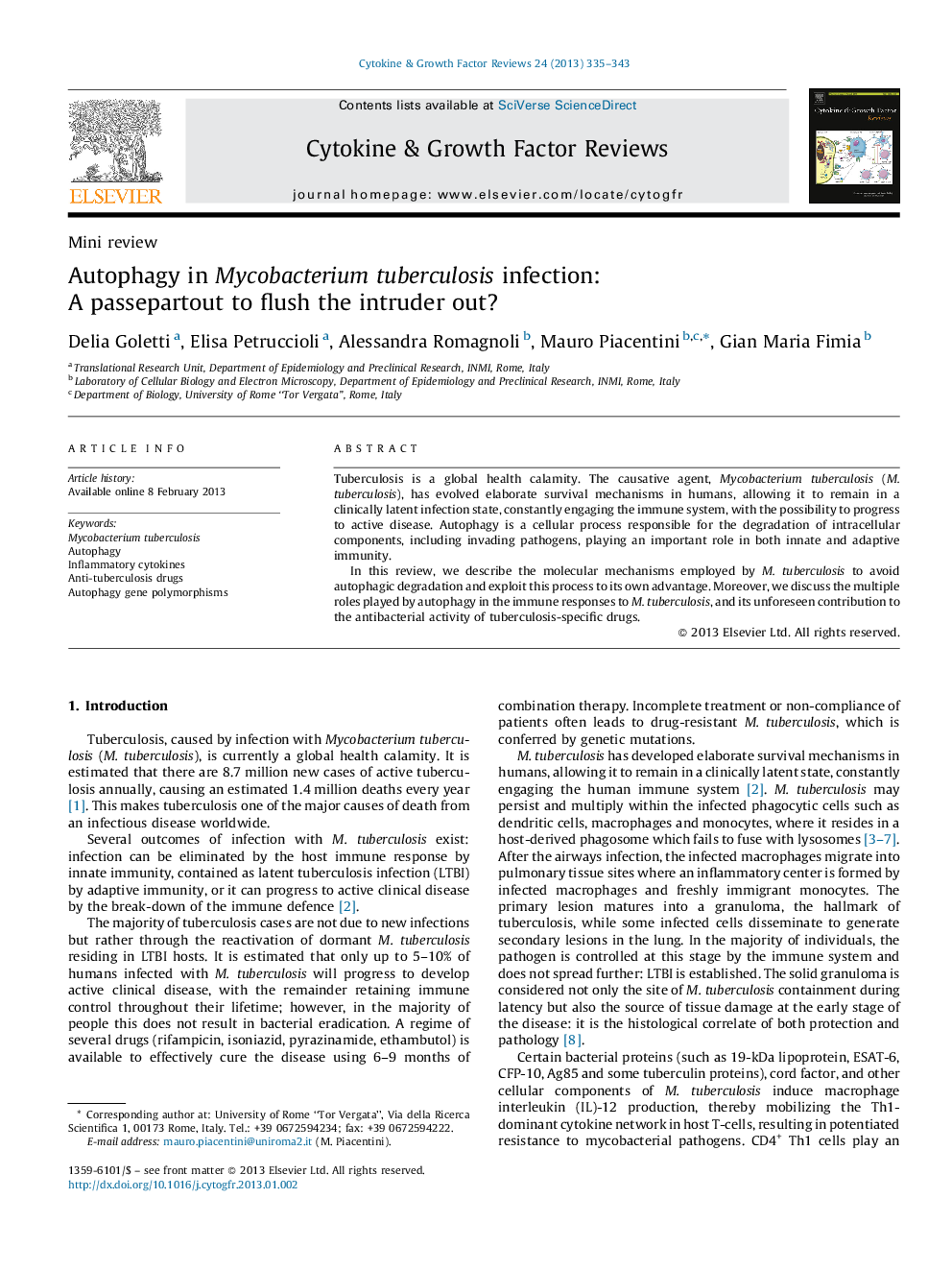| Article ID | Journal | Published Year | Pages | File Type |
|---|---|---|---|---|
| 2170532 | Cytokine & Growth Factor Reviews | 2013 | 9 Pages |
Tuberculosis is a global health calamity. The causative agent, Mycobacterium tuberculosis (M. tuberculosis), has evolved elaborate survival mechanisms in humans, allowing it to remain in a clinically latent infection state, constantly engaging the immune system, with the possibility to progress to active disease. Autophagy is a cellular process responsible for the degradation of intracellular components, including invading pathogens, playing an important role in both innate and adaptive immunity.In this review, we describe the molecular mechanisms employed by M. tuberculosis to avoid autophagic degradation and exploit this process to its own advantage. Moreover, we discuss the multiple roles played by autophagy in the immune responses to M. tuberculosis, and its unforeseen contribution to the antibacterial activity of tuberculosis-specific drugs.
